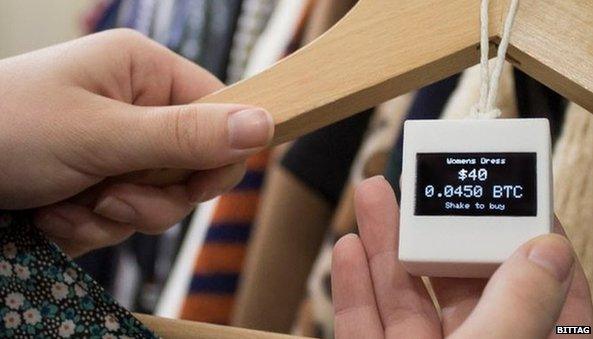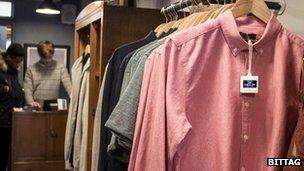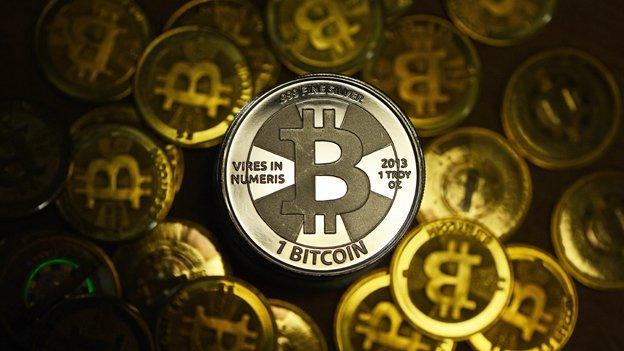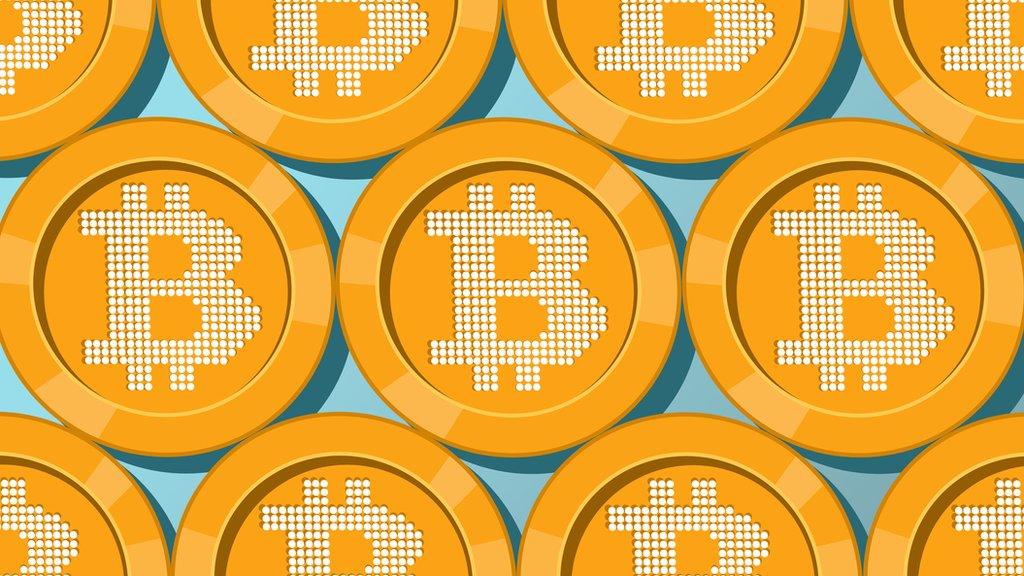Self-updating Bitcoin price tag shown off in east London
- Published

The Bitcoin price changes depending on how much the virtual currency is currently worth
A tag that shows an item's price in virtual currency Bitcoin and updates itself depending on market fluctuations has been shown off in east London.
BitTag uses wireless technology to connect to the internet and check the value of Bitcoin, altering the tag display once a minute.
Its creator hopes it will allow shops put off by Bitcoin's volatility to adopt the virtual currency.
Bitcoin's value has surged and crashed often in recent months.
Often, this has been down to high-profile hacks, or as a result of governments around the world, particularly China, commenting on the currency's future legal status.
Governments are keen to assert some control over a currency that has to date gained most attention as a method of anonymously buying drugs online.
But the currency's backers and enthusiasts have stepped up efforts to show Bitcoin's other uses.
"Bitcoin is becoming more popular," said BitTag's creator, Samuel Cox, who describes himself as a creative technologist.
"But there's a lack of infrastructure for people to buy things in the physical world because the value changes all the time."
'Quirky'
In the past 12 months, Bitcoin's value has peaked at over $1000 (£615), but at times was as low as $421.
The prototype BitTag device, which costs about £40, displays local currency as well as the Bitcoin price.
By connecting to a tablet via Bluetooth, the device is able to check the latest value of Bitcoin and change its display accordingly.
From here, a shopper can initiate a sale.

The tags were on display at BoxPark, a "pop-up" shopping centre in tech-savvy Shoreditch
"[The] Bitcoin transaction can be activated by a simple 'shake' of the BitTag," the product's website explains. "Enabling a Bitcoin QR code to be displayed on the display and scanned by the user's smartphone."
Due to the much higher cost compared with a standard price tag, Mr Cox conceded that BitTag's appeal was likely to be niche and more suited to "quirky" shops than major stores.
Other attempts to bring the virtual currency into the real world include a Bitcoin cash machine shown off last year.
Last month, Cumbria University said it would allow some students to pay their tuition fees using the currency.
Follow Dave Lee on Twitter @DaveLeeBBC, external
- Published28 January 2014

- Published27 February 2024

- Published3 February 2014
